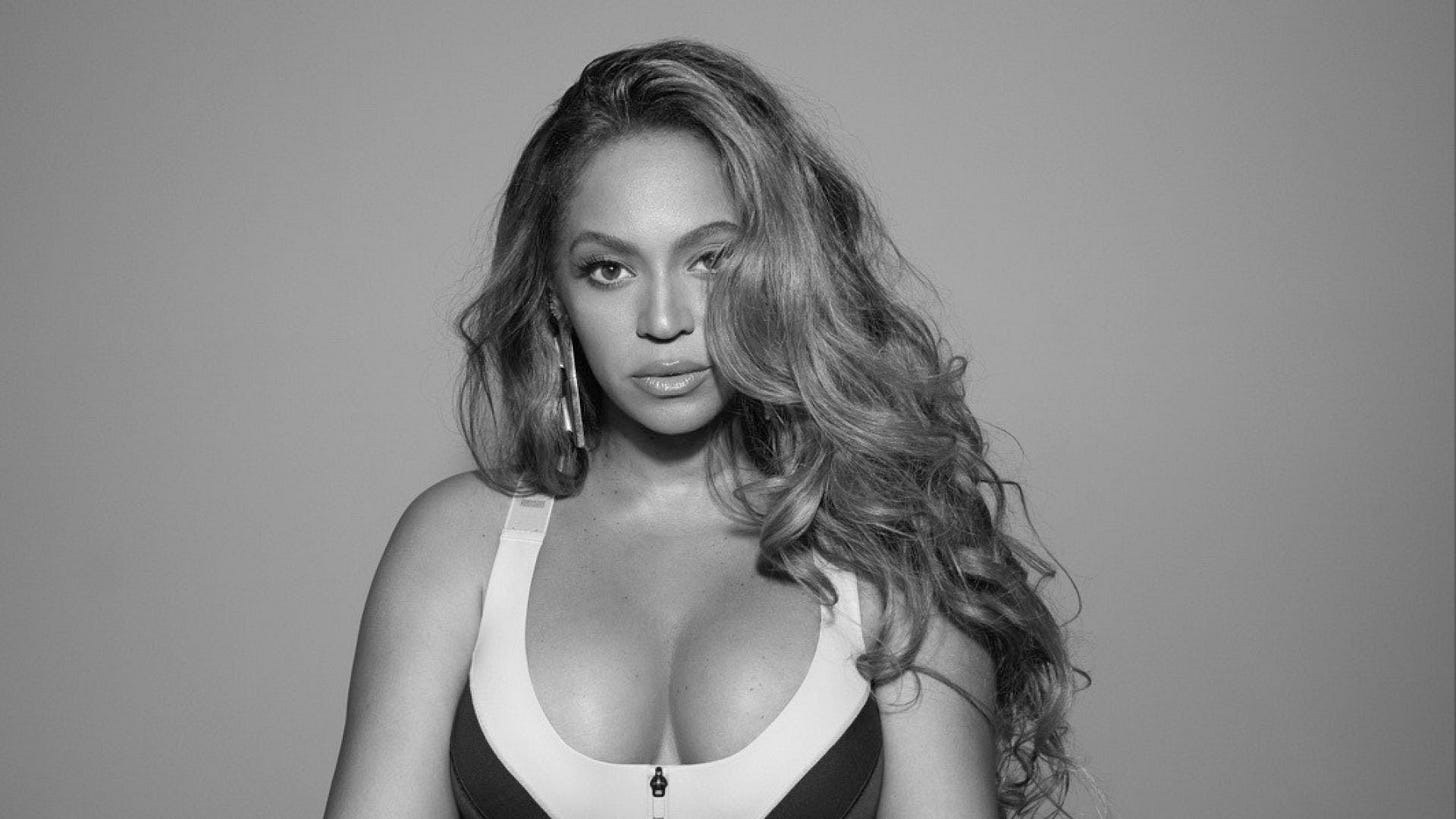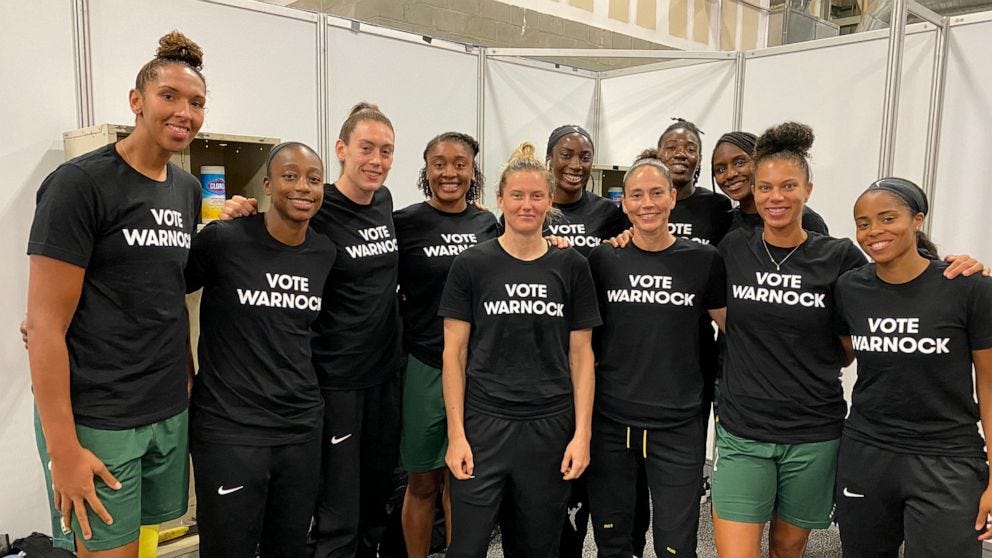Thanks, Beyoncé: Now I want a Peloton bike
The fitness brand and iconic entertainer have joined forces to produce an exclusive workout series and social-impact initiative for HBCU students. I love to see it.

This morning, Peloton shook the table when it announced a multiyear partnership with Beyoncé to produce an exclusive series of themed workout experiences with her music at the center of the experience. “Peloton and I both believe that the power of music can help uplift, motivate and inspire those on their fitness journeys,” the multi-hyphenate global icon said in a statement. “I’ve been a Peloton member for several years.” When it comes to Beyoncé, Michael see, Michael do. So of course, I want to be a Peloton member now too.
Similar to Bey’s previous creative projects, this partnership will have a social impact component too. Students at 10 HBCUs — including Bennett College, Clark Atlanta University, Grambling State University, Hampton University, Howard University, Morehouse College and Morehouse School of Medicine, Spelman College, Texas Southern University and Wilberforce University — will receive two-year Peloton digital memberships at no cost. Peloton has also committed to long-term partnerships to place undergraduates in internships. “I’m proud to celebrate the students at HBCUs with their own wellness regimens,” Beyoncé said.
L’Oreal Thompson Payton, a Chicago-based writer and friend of The Supercreator, learned of the partnership last night when she attended a Beyoncé-themed class with instructors Alex Toussaint and Tunde Oeyneyin. “I’d taken their 45-minute Black History Month ride back in February and it was hella hard, so I knew this ride would be challenging,” she told me. “But when the beat dropped last night and they revealed it was a Beyoncé-themed ride, I just about fell off my bike.” (You can see Thompson Payton’s full reaction in her Instagram Stories. “And to learn that the partnership is benefitting HBCUs makes it even more special. I believe education and health are basic human rights, so to see they’re offering complimentary digital memberships and internships is outstanding.”
Thompson Payton, who noted that the partnership deepened her loyalty to Peloton, predicted that it will attract new riders, especially Black women. “It’s really special to me, as a Beyoncé fan and a Peloton fan, to see this partnership. And the fact the intro class was led by Tunde, one of their Black women instructors, just gave me all the feels,” she said. “At the end of my IG Story yesterday, I said it was a great day to be a Black woman and I stand by that. What Beyoncé is doing and what Tunde is doing for Black women around the world is truly phenomenal.”
Like Apple, Peloton is a luxury brand — and its products and services are expensive AF. In September, the company announced a new treadmill called the Tread priced at $2,495 and available in “early 2021”; its Bike Plus also sells for $2,495 and its original Tread (renamed the Tread Plus) comes with a $4,295 price tag. The original bike is priced at $1,895. “From there, riders can add accessories, such as the specially designed shoes to clip into the bike pedals, weights to use for upper-body workouts on the bike, headphones, heart rate monitor, and a mat,” Thompson Payton wrote in a piece for ZORA in June. “On top of that, the All-Access membership, which includes thousands of spin, strength training, walking/running, cardio, meditation, and yoga classes, is $39 per month.”
News of Beyoncé’s Peloton partnership follows “Drip 2” of Beyoncé’s Ivy Park collaboration with Adidas. The collection includes apparel in sizes XXXS to 4X, belts, socks, hats, bags, and footwear equipped with innovative lacing and hook systems to allow the wearer to clip the shoes to a gym bag — all under $200. Fans can now purchase and wear their Bey-approved fitness gear to their Peloton classes.
In its letter to shareholders last week, Peloton reported a net income of $69.3 billion and that its 3.6 million members completed 90 million workouts across 17,000 classes — up 332 percent year-over-year. According to Lauren Thomas at CNBC, Peloton shares jumped more than four percent when news of the partnership broke, bringing the company’s value to $29.1 billion. Peloton’s goal is to be the leading global connected fitness and wellness platform, as indicated by its aggressive content investments — it plans to produce over 2,400 new classes next quarter — so it’s unsurprising that Peloton would team up with the world’s most recognizable entertainer to accelerate the company’s ambitions.
It’s worth noting that at this point in Beyoncé’s career, her music is no longer the icon’s only meal ticket. Instead, her catalog has appreciated into a standalone media entity that unlocks access to other lucrative categories like fitness and fashion. So even if you’re uninterested in investing two Gs for a top-tier stationary bike or enrolling in a barre class, there’s a business lesson in this news: When you own your creative work, you can repurpose and monetize it in different contexts without extra effort.
FYI
Experts predict we could soon hit 200,000 daily coronavirus cases (we just topped 10-freaking-million after five straight days of 100,000-plus cases, btw) and NYC’s mayor just announced my city is “dangerously close” to a second wave. There seems to be a reason for optimism on the vaccine front but in the meantime, thanks for wearing your masks, practicing physical distancing and being an all-around cool human. 🤗
Read All About It

Jemele Hill at The Atlantic on why Black athletes should never stick to sports again:
It was fitting that Black athletes were so essential to this victory. President Donald Trump and some sports fans often complain when Black athletes refuse to stick to sports. Yet the election is a clear demonstration of why athletes should use their public platform to advocate for justice and democracy. Trump’s loss doesn’t mean the inequities facing Black Americans will vanish, but Black athletes have positioned themselves to be a prominent voice in addressing the issues that affect their community.
David Dennis, Jr. at Level on why white allyship has maxed out:
This is the White allyship ceiling. In our most dire times, the best they have for us is a situation in which a minority of White people do the bare minimum of voting against Donald Trump while the rest of us transform America. For some, this is disheartening. For others, this is simply confirmation of what we knew all along. For everyone, this is a benchmark for the limits of what we can hope for from whiteness.
Dylan Matthews at Vox on why the polls got the 2020 Election wrong:
The theory is that the kind of people who answer polls are systematically different from the kind of people who refuse to answer polls — and that this has recently begun biasing the polls in a systematic way. This challenges a core premise of polling, which is that you can use the responses of poll takers to infer the views of the population at large — and that if there are differences between poll takers and non-poll takers, they can be statistically “controlled” for by weighting according to race, education, gender, and so forth. (Weighting increases and decreases the importance of responses from particular groups in a poll to better match their share of the actual population.) If these two groups do differ systematically, that means the results are biased.
Jordan Heller at GQ on what happened to former Alabama Democratic senator Doug Jones:
And yet Jones had lost by a 21-point margin. Beyond the dread of discovering that Trumpism was far stronger than the polls indicated was the feeling among some in his campaign that they’d been used by national party leaders who were happy to fundraise off of Jones’s growing national profile as a resistance darling, only to then redirect those resources to boondoggle Senate races like the one in Kentucky.
Sarah Wasilak at Popsugar on how SNL recreated Kamala Harris’s white pantsuit for Maya Rudolph:
Rudolph ended up performing the cold open in nude Jimmy Choo pumps and the cream suit that was, interestingly enough, originally purchased from a suit supplier a year earlier for Cecily Strong to play Melania Trump in a sketch, though it was never used. All these minor details are extremely important to [producer and costume designer Tom] Broecker and his team, who confirmed that Harris's small touches with her clothing, like her meaningful jewelry or her Converse, define her as a real person. "I believe fashion is always incredibly important in helping an actor play a character. Whether that character be a real person or an 'invented' character, that actor must rely on costume to help them define their character . . . [it's] an impossible task for any other place other than Saturday Night Live. We have the best people anywhere in the world," Broecker went on to say.
Jonathan Chait at Intelligencer on why Trump and Republicans are “plotting to undermine democracy”:
Ginning up no-hope lawsuits to throw out tens of thousands of votes in multiple states was obviously never part of “the process” of American presidential elections until now. Trump’s supporters rationalize it as a necessary step to assure his fans that the election was fair. “Under the contentious circumstances of this election, the traditional media’s decision to declare a victor before the official process had run its course has diminished the confidence of Trump voters in the announced result,” argues Andy Puzder, rejected Labor Secretary nominee and author of The Capitalist Comeback: The Trump Boom and the Left’s Plot to Stop It. “Even if the declaration of a Biden victory is found to be accurate, the call was premature, and it will make the effort to unify our nation far more difficult.”
Feedback
If you’re enjoying what you’re reading, please recommend The Supercreator. They can sign up here. If you want to share your thoughts on an item from this post or on The Supercreator in general, reply to a post or email me at michael@thesupercreator.com.
Super Picks
Swoon Lemonade: Fun fact: My preferred non-water drink of choice is lemonade — so obvi, I’m excited to taste this brand’s zero-sugar version. It’s only 10 calories and made sweet by monk fruit, a melon native to Southeast Asia with a natural sweetness minus any of the calories or carbs that sugar does.


